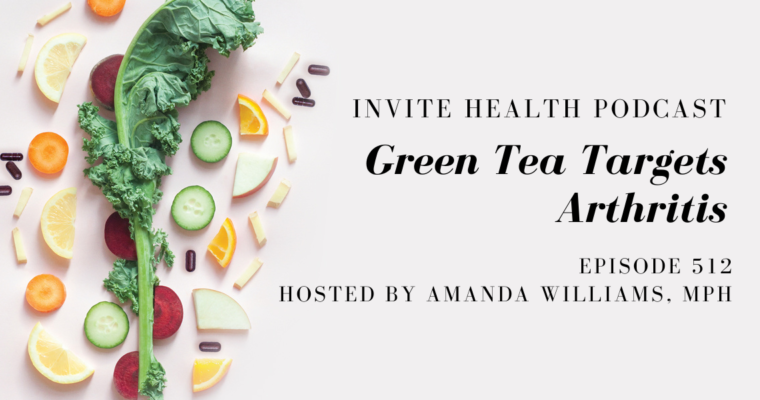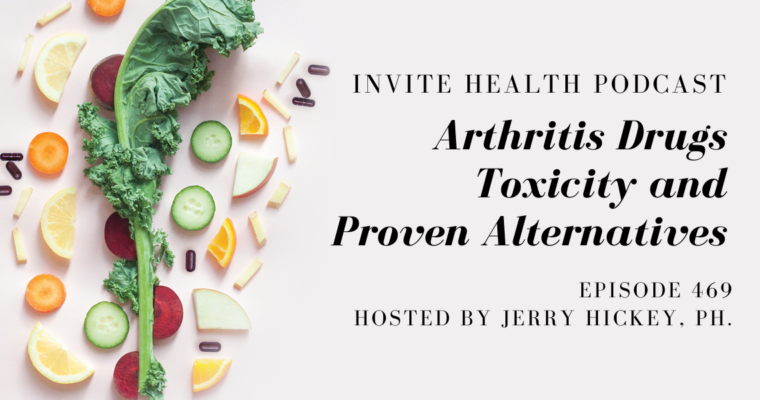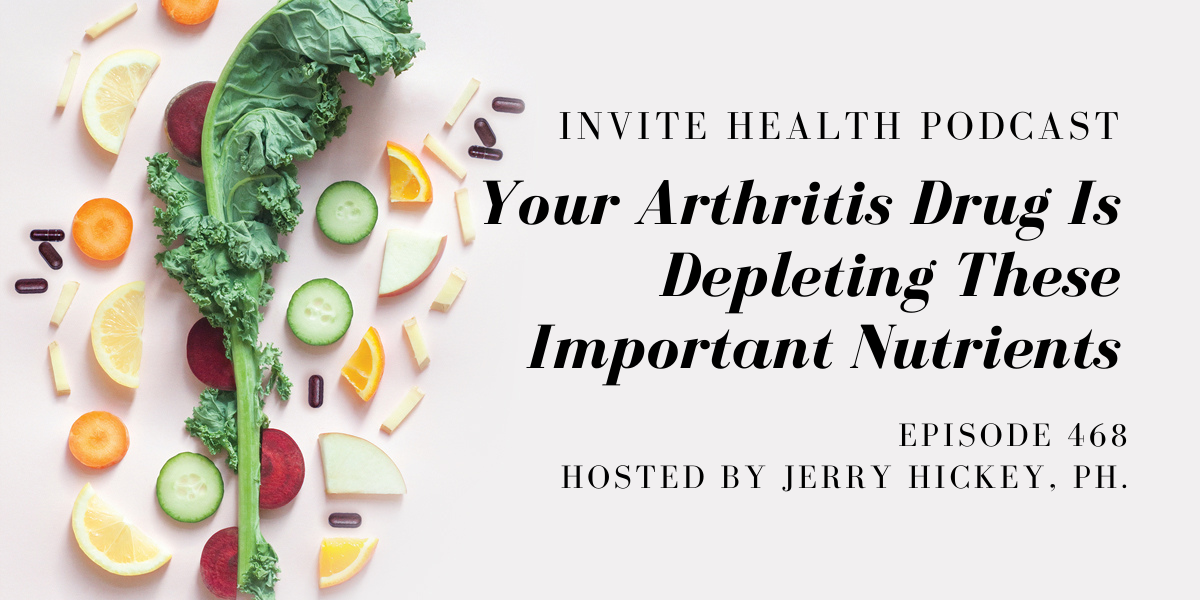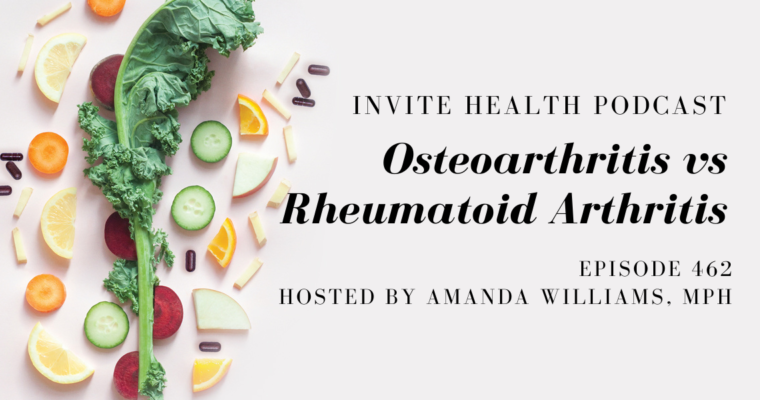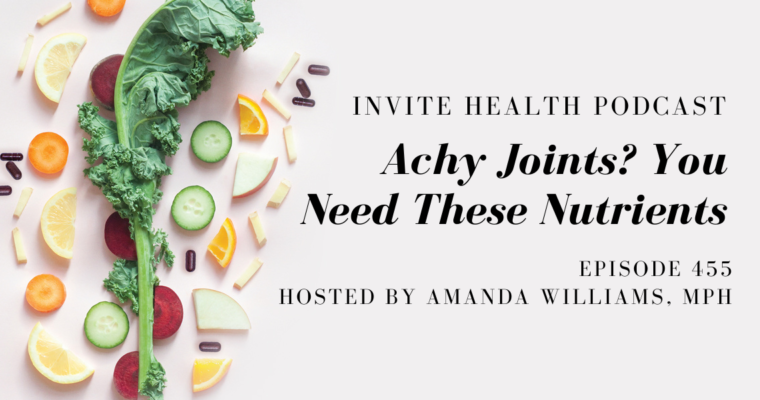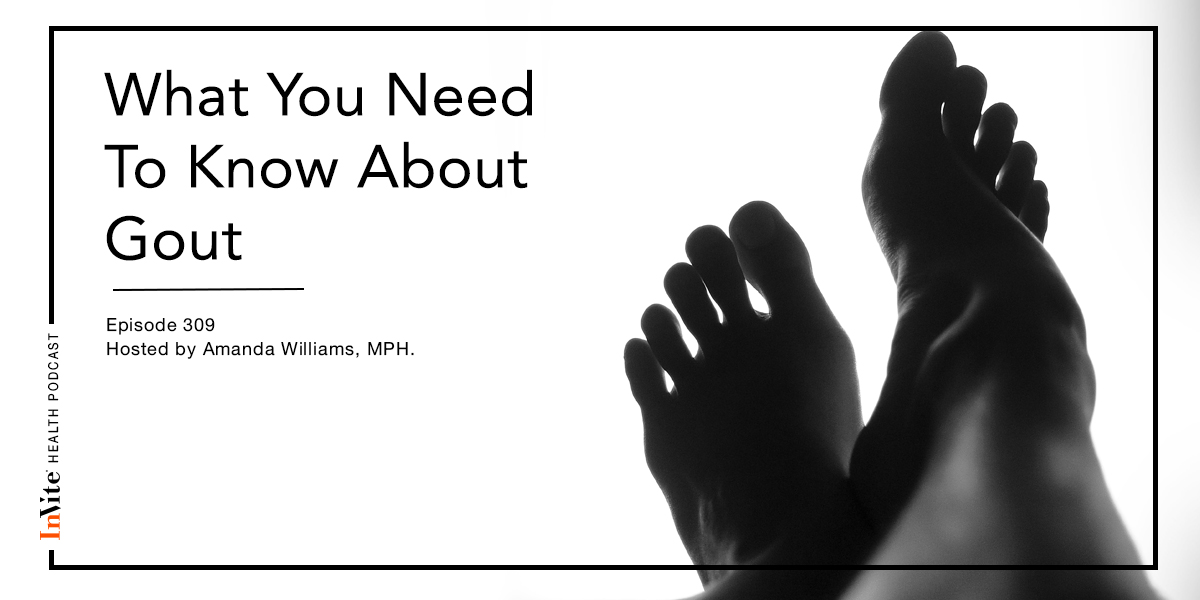arthritis
InViteⓇ Health Podcast, Episode hosted by Jerry Hickey, Ph.
Subscribe Today!
NSAIDs are extremely popular drugs. They’re used every day by millions and millions of Americans. They have a wide range of indications and that’s why they’re so popular.†
NSAIDs do work and they’re typically used for arthritic joint pain, back pain, muscle pain, tendonitis, headaches, autoimmune disease management, fevers and more. They do have many side effects and toxicities, but these are frequently downplayed. However, arthritis drugs also deplete these nutrients and this has consequences. This will have consequences unless you replete these nutrients.†
CHOLESTEROL-LOWERING STATIN DRUGS AND NUTRITIONAL SUPPLEMENTS – INVITE HEALTH PODCAST, EPISODE 441. Listen Now>>
Common NSAIDs
Here’s a short list of some NSAID drugs:
- Indomethacin (Indocin)
- Sulindac
- Ibuprofen (Motrin, Advil, Nuprin)
- Naproxen and Naproxen Sodium (Aleve, Naprosyn, Anaprox)
- Diclofenac (Voltaren)
- Celecoxib (Celebrex)
- Aspirin
- Diflunisal (Dolobid)

How arthritis drugs impact other nutrients
Here are the nutrients that these NSAID arthritis drugs can deplete. We’ll start with folate, which stands for all the different forms of this very important B-vitamin. We use methyltetrahydrofolate, the active form of folate, in our multivitamins. There is also folate found in vegetables like broccoli and spinach, but it can be hard to get out of plants. You need folate to create DNA and for amino acid metabolism, such as SAMe, homocysteine and methionine. That’s really important because you need this to create healthy tissue.†
A second nutrient, which is a hormone, that arthritis drugs like Advil and Aleve deplete the body of is melatonin. Melatonin is known as a sleep hormone. It sets the body up for sleep by lowering your body temperature and lowering your nighttime blood pressure. This is important. In the morning, to wake up, the adrenal glands release adrenaline and the stress hormone cortisol. These make your blood pressure go up so more blood can reach your brain and muscles and they increase your blood sugar. The problem is, if your blood pressure didn’t drop at night and it’s elevated in the morning, that additional increase in blood pressure can lead to a heart attack or stroke. You also need melatonin for the digestive tract and the immune system.†
STUDIES SAY MELATONIN MAY LOWER THE RISK OF SOME CANCERS – INVITE HEALTH PODCAST, EPISODE 302. Listen Now>>
Besides the folate and the melatonin, these arthritis drugs including Advil, Aleve and aspirin can also deplete you of zinc. That’s a problem. Your pancreas, which releases enzymes to digest your food, relies on zinc. If you even lack zinc a little bit, you’re not digesting your food well because you’re not going to release those enzymes. The pancreas also needs zinc to help control your blood sugar.†
The other nutrient that these drugs deplete is iron. With iron, you create myoglobin, which is the red stuff in your muscles. It allows the muscles to use oxygen, but it also breaks down nitric oxide in the muscle, which stimulates energy production in the human body. You also need iron for the health of your brain, organs, tissues and immune system.†
If you’re on NSAIDs to help with arthritis or any other issues, you have to pay attention to folate, melatonin, zinc and iron.†
In this episode, Jerry Hickey, Ph. explains how many medications commonly used for arthritis can impact the body’s levels of important nutrients. He discusses four key nutrients that are depleted by NSAIDs and indicates why those nutrients are needed by the body.†
Key Topics:
- What are NSAID drugs?
- Folate’s role in the body
- The importance of proper methylation
- How the body regulates blood sugar
Thank you for tuning in to the InViteⓇ Health Podcast. You can find all of our episodes for free wherever you listen to podcasts or by visiting www.invitehealth.com/podcast. Make sure you subscribe and leave us a review! Follow us on Facebook, Twitter and Instagram at InViteⓇ Health today. We’ll see you next time on another episode of the InViteⓇ Health Podcast.


